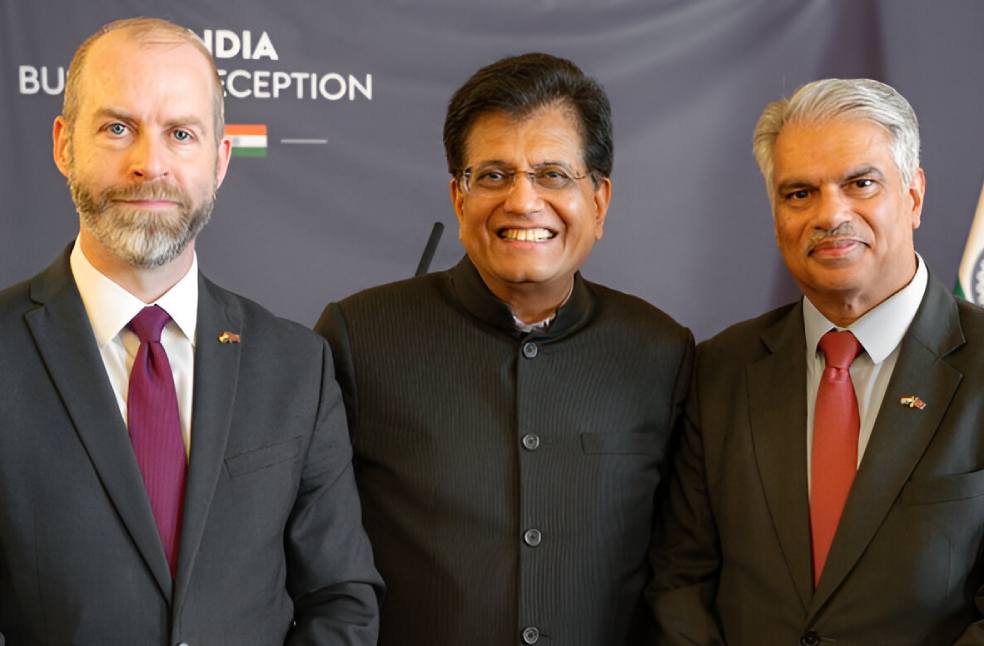United Kingdom: The UK and India have signed a major trade deal designed to boost exports and cut tariffs, in what the British government has called its most economically significant bilateral trade deal since leaving the European Union in 2020.
The deal, three years in the making, will ease the export of UK goods such as whisky, cars, aerospace products and cosmetics to India, while lowering taxes on Indian imports like clothing, footwear, jewellery, and food products entering the UK.
UK Prime Minister Sir Keir Starmer described the deal as a landmark agreement that would deliver for British people and businesses and contribute to economic growth. Indian Prime Minister Narendra Modi called the deal a historic milestone, saying it would catalyse trade, investment, job creation, and innovation in both economies.
The trade deal with India will raise living standards, put more money in the pockets of British working people, and deepen the unique ties between our two nations. pic.twitter.com/TAXsPPN9Pv
— Keir Starmer (@Keir_Starmer) May 6, 2025
Trade between the UK and India stood at $56.83 billion (£42.6 billion) last year and was already forecast to grow, but the government now projects an additional $34.01 billion (£25.5 billion) in annual trade by 2040 as a direct result of the agreement.
Once in force, potentially within a year, UK consumers are likely to benefit from lower costs on imported Indian goods. Tariffs will be significantly reduced on items such as clothing, gems, frozen prawns and mid-range cars.
In turn, UK exports will also become more competitive in the Indian market, with levies on products like gin and whisky halved from 150 percent to 75 percent initially, and further reductions planned. Tariffs on expensive UK-made cars will fall from 100 percent to 10 percent under a quota-based system, and other exports such as medical devices, electricals, aerospace parts, and food items like salmon, chocolates and biscuits will also face lower duties.
The agreement also includes measures that improve access for UK firms to bid for government contracts in India, as well as provisions for expanding services trade. A notable element of the deal is a three-year exemption from double social security contributions for employees temporarily posted between the two countries.
Under the arrangement, contributions will only be paid in the home country, a move hailed by the Indian government as an unprecedented achievement. The UK already has similar arrangements with 17 other countries, including the US and EU members.

The government has emphasised that the exemption will not affect NHS funding, as Indian workers in the UK will still be required to pay the immigration health surcharge. However, the clause has sparked criticism, with opposition leaders raising concerns over transparency and fairness. Liberal Democrat deputy leader Daisy Cooper called for MPs to have the chance to vote on the deal, while Conservative MP Kemi Badenoch dismissed the agreement as an example of Labour’s ‘two-tier taxes’.
Despite the political debate, business groups have welcomed the agreement. UK Business Secretary Jonathan Reynolds said the benefits would be massive for both businesses and consumers. Rain Newton-Smith, head of the CBI, described the deal as a beacon of hope for free trade in an era marked by rising global protectionism, while trade expert Allie Renison said it could be transformational given India’s rapid growth and the traditionally high barriers to its market.
India is currently the fifth largest economy in the world and is expected to become the third within a few years, while the UK ranks sixth. For both nations, the deal represents a strategic partnership at a time when global trade relationships are being reshaped.



